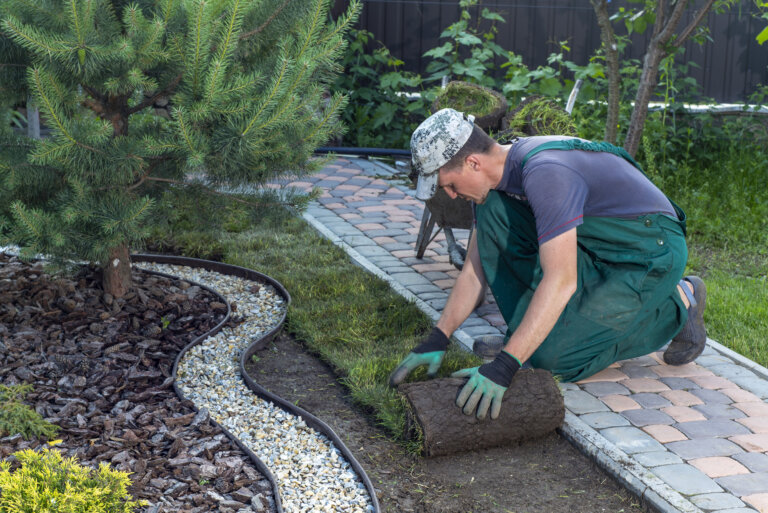Studies have revealed an increased risk of developing certain cancers after exposure to glyphosate and Roundup. Our Roundup litigation attorneys provide this crucial guide for landscapers to address toxic torts and offer strategies to mitigate the risk of Roundup exposure. This guide can help you understand potential hazards related to Roundup exposure and how to ensure your safety in the field.
Who Is at Risk of Roundup Exposure?
People who are at significant risk of Roundup exposure and exposure to other glyphosate-based herbicides (GBHs) include:
- Groundskeepers
- Agricultural workers
- Professional gardeners
- Landscapers
- Herbicide applicators
- Farmers
Roundup is one of the most common herbicides used in the United States. It is used in agriculture to control weeds in crops. Roundup is also extensively used in commercial and residential landscaping.
How Can a Landscaper Be Exposed to Roundup and Glyphosate?
Roundup exposure can occur whenever a landscaper uses glyphosate-based herbicides or works in an area being treated with Roundup glyphosate. The three primary ways a landscaper is exposed to Roundup are:
- Absorbing glyphosate through the skin after direct or indirect exposure to Roundup
- Eating food treated or tainted with Roundup
- Breathing glyphosate through the nose or mount (i.e., drift or ingestion)
The WHO’s International Agency for Research on Cancer classified glyphosate as “probably carcinogenic” to people in March 2015. Numerous studies support this conclusion. An analysis of support evidence published in Science Direct reports that GBH exposure is associated with an increased risk of non-Hodgkin’s lymphoma in humans. Individuals with a high cumulative GBH exposure had a 41% increased risk of developing non-Hodgkin’s lymphoma.
What Can Landscapers Do to Avoid Roundup Exposure?
If you work in landscaping, there is a high chance you will work with Roundup or another glyphosate-based herbicide. Steps you can take to minimize your risk of Roundup exposure include:
- Not eating, smoking, or drinking while Roundup is being applied
- Wearing protective eyewear, gloves, and clothing when using Roundup or being near an area where Roundup is being used
- Thoroughly wash hands after applying glyphosate-based products
- Avoid standing near the area where Roundup is being sprayed to avoid inhaling the herbicide
- Wash hands after handling plants sprayed with Roundup
- Immediately wash skin and rinse eyes if exposed to Roundup
- Wash all produce before eating it
- Never walk barefoot in an area where Roundup was applied for at least 24 hours after application
It is wise to understand the symptoms associated with glyphosate exposure. Glyphosate poisoning can cause a variety of symptoms, including abdominal cramps, breathing difficulty, vomiting, kidney failure, headache, skin/mouth/throat irritation, diarrhea, and many other adverse effects.
Symptoms of non-Hodgkin’s lymphoma include:
- Persistent fatigue
- Fever
- Swollen lymph nodes
- Chest pain
- Trouble breathing
- Unexplained weight loss
- Coughing and trouble breathing
If you experience any adverse signs or symptoms after exposure to Roundup, see your doctor immediately. Ensure you tell your doctor about the exposure to glyphosate.
Learn More About Roundup Exposure and Cancer Lawsuits From Our Roundup Litigation Attorneys
Contact our Roundup litigation attorneys for a free consultation if you were exposed to glyphosate or Roundup and were diagnosed with non-Hodgkin’s lymphoma or a related cancer. You may be entitled to compensation for your medical bills, lost wages, pain & suffering, and other damages. We can help you file a Roundup cancer lawsuit seeking compensation for the harm caused by Roundup exposure.

